I’m in an odd place within the homesteading crowd. So many are preppers and survivalists. I am neither, yet I engage in, and write about, many of the same activities that they do: gardening, preserving, foraging, and wildlife tracking.
I share my posts with preppers and survivalists, because we appreciate each others’ work. But sometimes I feel like a fake, because I’m not really preparing for a disaster, I don’t keep a year’s supply of food, I am grateful for modern medicine, I applaud the public school system, and I enjoy the amenities of living on the grid.
And I have plenty of friends who enjoy survivalist activities, but don’t strive for self-sufficiency, nor focus on disaster planning. So the survivalist trend attracts different types of people and for different reasons. What’s the appeal? What does it mean on an individual level, and on a population level? Is it good or bad for the environment? Is it at odds with modern technology? I was inspired to try to answer these questions in anticipation of National Geographic’s upcoming series, Live Free or Die. This post was featured by National Geographic in Re-wilding: Homestead Bloggers Weigh In.
Survivalism, technology and sustainability
The surge in interest in survival skills
At the root of it must be discomfort with our growing dependence on technology, which creates the illusion of independence from the natural world. Our vegetables grow in far away fields, and our food animals are crowded in warehouses and hidden from view. Our medicines with names we can’t pronounce, were created with processes we don’t understand.
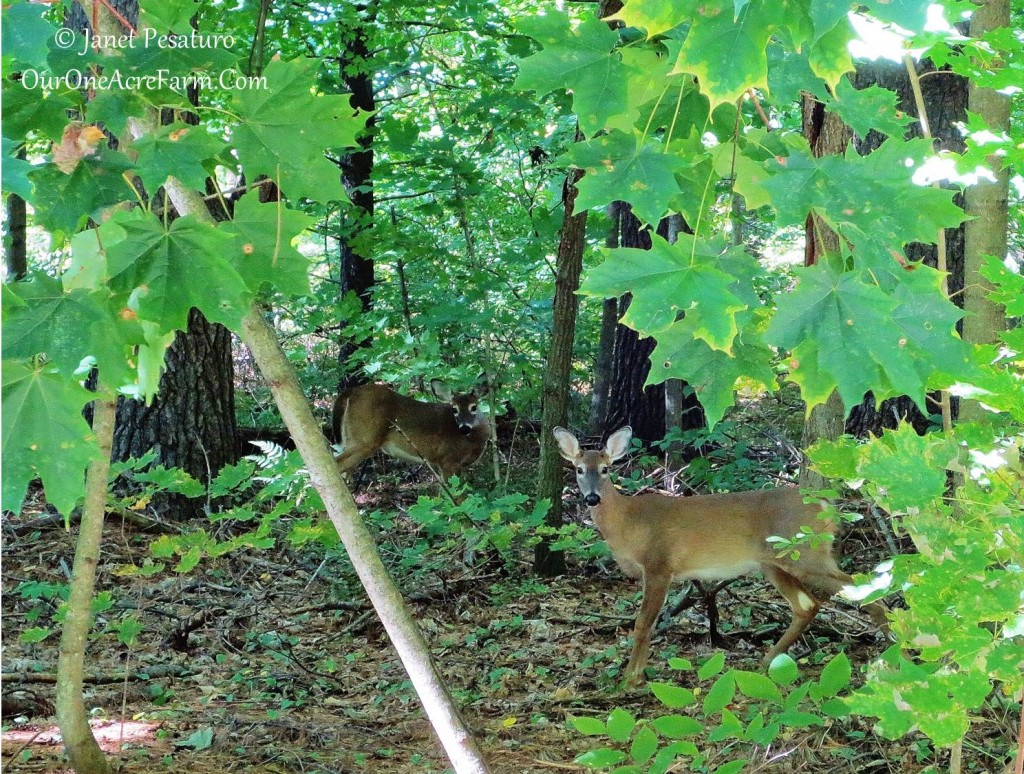
Most of our food animals are hidden from view in tight confinement, and fed unnatural diets of grain. Survivalists see value in harvesting free living animals on natural diets, like these two deer.
Layers of specialized knowledge separate us from the raw resources needed for survival. And that makes us uneasy. Some of us fear and prepare for the collapse of that complex system. Some of us want to reconnect with ancestral ways. Some of us want more control over the resources we use for personal health. Some of us simply enjoy working with soil, plants and animals.
And some of us believe that “simple living” is better for the environment. But is it? What would happen if everyone took the Back to the Land concept to the extreme?
Primitive living and sustainability
It frightens me to imagine 7.1 billion people attempting to live as hunter-gatherers. Most scientists agree that Earth’s carrying capacity for humans depends on technology, because the latter affects how we manage resources and waste products. Surely, without agriculture, high rise buildings, and many other feats of modern engineering, Earth’s carrying capacity for humans must be much lower.
One estimate says Earth could support a population of about 100 million human hunter-gatherers. How about 7.1 billion hunter-gatherers? Think accelerated species extinctions, famine, and war. In the short run, widespread conversion to hunting and gathering wouldn’t do any good for people or for the rest of Earth’s biota. Stabilization at 100 million hunter-gathers might be more sustainable than 7.1 billion modern humans, but getting there would be painful. Especially for the other 7 billion.
The value of the survivalist trend
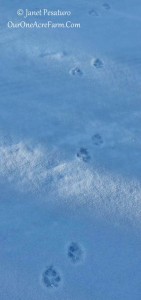
Hunters and trackers gain awareness of the habits and health of wild animals, by studying their tracks and sign.
Widespread conversion to a hunter-gatherer existence would probably cause ecological collapse. But I think there is something to be gained from the survivalist trend, beyond the personal rewards to the rugged individual.
While humanity is relatively stable at present, for many other species, the SHTF already. And they don’t have a bug out plan. It’s called the Anthropocene Extinction Crisis. But people working directly with the wild plants and animals they need for survival, have an awareness of them that white-collars tend to lack. Some examples:
- Trackers and hunters often know what factors impact the health and populations of their target animals.
- Foragers are aware of invasive plants and declining native plants.
- Gardeners see that native pollinators are declining.
These people remind all of us of our dependence on Nature and provide information valuable for conservation. They can also inform researchers, via citizen science projects (see below).
….But only if they use technology, like the internet, to communicate their findings. Ironically, it’s modern technology that makes the survivalist trend useful on a population level. And because of modern technology, the average person can learn “primitive” skills and apply them to environmental causes.
Survival skills for the average person
So let’s say you’re a suburban or an urban dweller. You have no fantasies of living off the grid, or of getting all your food from wild game and wild plants. But you’d like to feel a little more self-reliant, to connect more directly to the plants and animals that are your food, and spend more time exploring forest and field. You’re in luck, because modern technology has made a wealth of information readily available to anyone who wants to learn. There are many options:
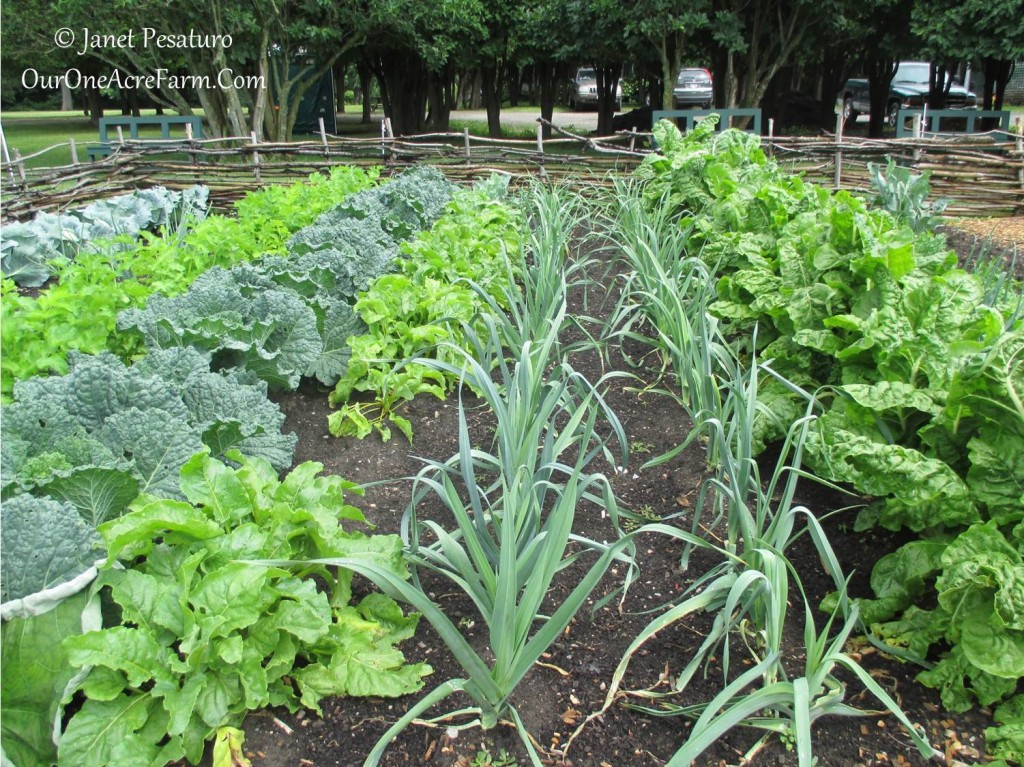
Though espoused by the Back to the Land movement, successful vegetable gardening requires tools, and borrows from a wealth research on soil ecology, plant breeding, etc.
- Gardening. While this is not exactly “primitive”, it’s a basic skill which allows you to eschew some of the more questionable technologies, such as pesticides and GMO’s.
- Keeping small livestock for food or fiber. Honeybees, chickens, ducks, rabbits, or small goats or sheep, work well in some suburban areas, and occasionally in urban areas.
- Preserving food.
- Sewing, knitting, or weaving some of your own clothing.
- Responsible foraging is a great “primitive” skill, because you don’t need any equipment other than field guides. There are many online sources of information, and foraging walks are popping up all over the country.
- Tapping trees for syrup. You can make maple syrup, if you have sugar maples, but that’s not your only option. Sap from certain other trees can be made into syrup, as you can read here.
- Animal tracking is a valuable skill for learning about your wild neighbors. Suburbs are often rich with wildlife, contrary to popular belief, and even urban areas are home to a good number of species. And you don’t need any expensive equipment for tracking.
- Birding is another option. It’s so mainstream now that you probably don’t think of it as a primitive skill, but it is a great way to heighten your wilderness awareness. All you need is a decent pair of binoculars and a field guide.
- Survival cooking
- Learn to hunt or learn to fish, even if you do it only once or twice a year. These are options for those who can manage the expense of the necessary equipment and travel.
How to use survival skills to improve sustainability
Modern technology can help you use your basic skills to contribute to wildlife conservation, which is essential for sustainability. A computer, a camera, a pair of binoculars, a GPS, and an iphone are quite useful.
- Birders can enter their sightings on eBird, a great data source for citizen science projects. They can also contribute their expertise to Project FeederWatch, NestWatch, or HawkWatch
- Foragers can inspire others by sharing locations of edible wild plants on an online map at WildCrafting
- Gardeners and plant enthusiasts can report the location of invasive species on iMapInvasives. The data informs land stewards.
- Trackers can use their data to inform land use decisions, via programs like Keeping Track.
- In the UK, mammal trackers can enter their finds on the National Mammals Atlas, another data source for citizen science projects.
- Traditional African hunter-gatherers use modern technology to apply their tracking skills to wildlife conservation, in the CyberTracker program.
- Hunters and trackers can use wildlife cameras to inspire and educate others, by providing a window into the private lives of wild animals.
Survivalism, technology, and sustainability don’t have to be mutually exclusive. On the contrary, we can couple the skills of the past with the tools of the present to secure a sustainable future.
What are your thoughts about the survivalist trend? Would it be sustainable on large scale? Is technology the friend or foe of sustainability?
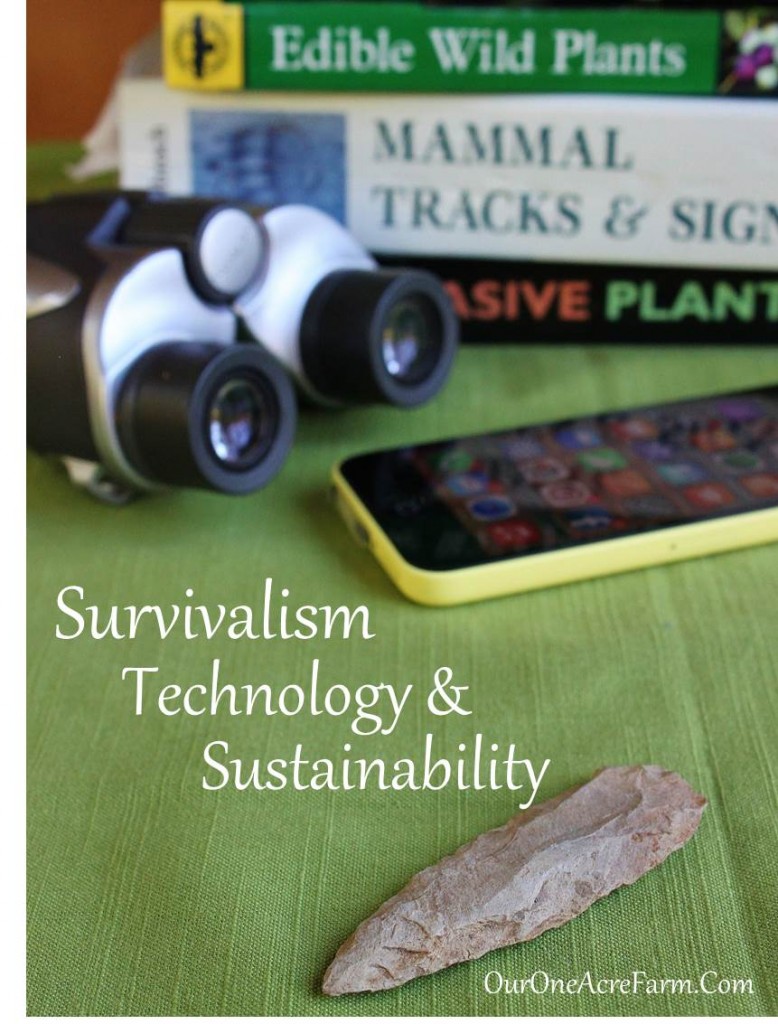 Shared on: Homestead Barn Hop, Thank Goodness it’s Monday, Natural Living Monday, Backyard Farming Connection, Wildcrafting Wednesday, From the Farm
Shared on: Homestead Barn Hop, Thank Goodness it’s Monday, Natural Living Monday, Backyard Farming Connection, Wildcrafting Wednesday, From the Farm










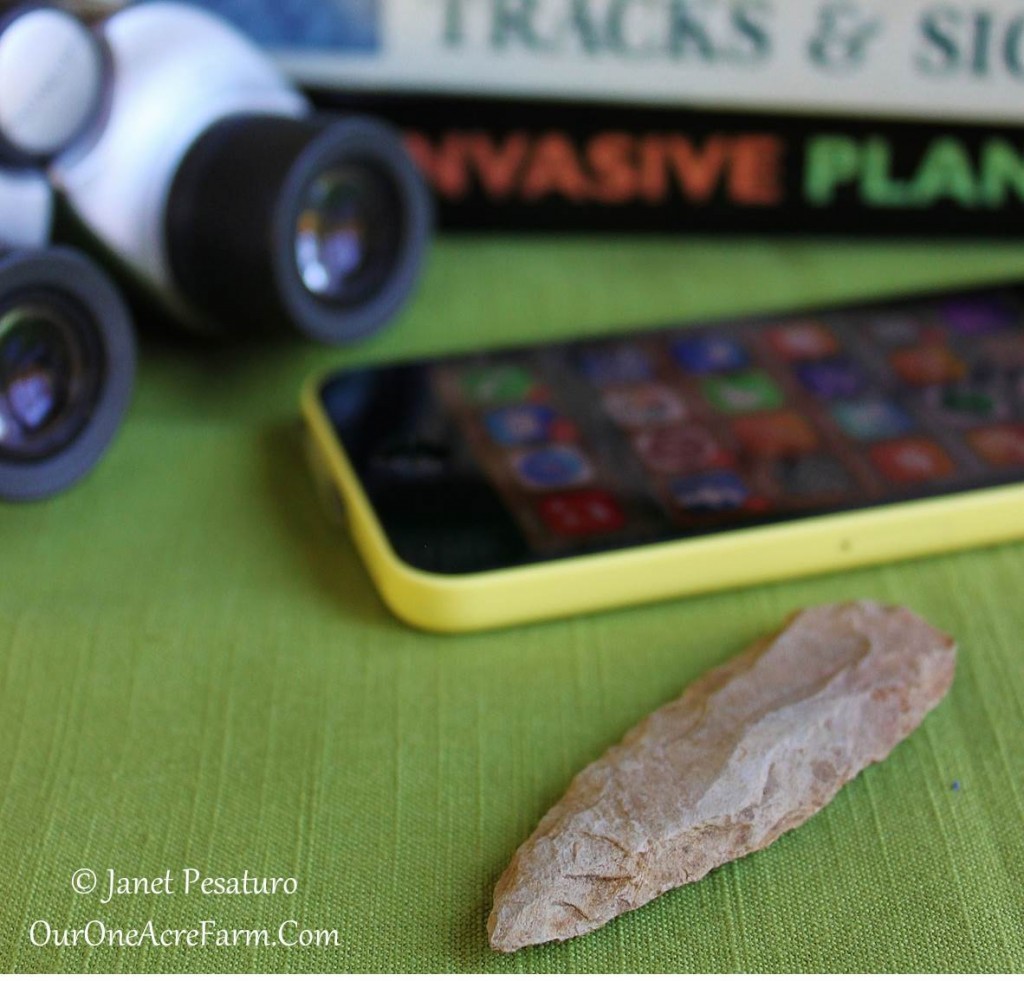
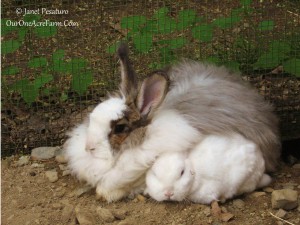
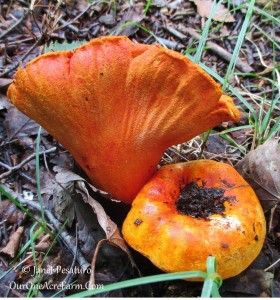
I am with you Janet. Our goal is to be self sustainable, in that we want to produce about 85% of our food on our 10 acres. NOT by simply hunting and foraging (although that is a small part of our food supply). The only “prepping” we do is for winter. We store our garden and meat harvest to last us until the next garden season. We do this because we want to know where our food is coming from, it is less expensive, it’s more sustainable, and we love doing it! Not because we are afraid the modern world will come crashing to an end. We also utilize technology to educate ourselves about this homesteading life, and learn methods for doing new things. Thanks for the great article!
We are on the same page, Angi, thanks for your comment!
Nice article! As a gadget guy I fully agree that there’s a place for technology in prepping and homesteading lifestyles, although survivalists can be pretty hardcore in their minimalist attitude about how to get things done. LOL But as one of those that leans a little more towards the prepping mindset I’d like to point out that most of us aren’t worried about the entire population of the world going native and stressing the planet’s resources. It may seem morbid but honestly we just plan to outlive the vast majority who don’t bother being prepared for more than a week, or one winter, on their own. The gear and food and other junk is just to get us through that mess. If you consider the sort of population losses that past pandemics have caused and imagine how much worse it will be when nobody is restocking the Piggly Wiggly for a year there won’t be any issue with the world’s resources being able to provide for whomever is left come spring.
Yes, I realize that most preppers don’t take survivalism to the extreme. I hope I conveyed my awareness that there is a wide range of perspectives within the homesteading, preppping, and survivalist crowds. And I agree with you that there are so few people willing to take survivalism to the extreme, that Earth will never see 7.1 billion hunter-gatherers.
My intention was to explore whether true survivalism is actually more sustainable than modern living. My conclusion is that there is no answer to that question, because sustainability depends on whether or not the planet’s carrying capacity for humans has been exceeded, but carrying capacity itself depends on technology.
The way I see it, “primitive” living is sustainable as long as carrying capacity is not exceeded. Modern, high tech living is also sustainable, as long as carrying capacity is not exceeded. But modern high tech living can sustainably accommodate more people, because many technologies increase carrying capacity.
Pingback: Re-wilding: Homesteading Bloggers Weigh In – Nat Geo TV Blogs
Great article Janet! I know we each approach these topics from our own unique and differing perspectives. I garden and preserve not only because I enjoy it, but because I want to know my food personally, and I want some control over what I eat and how it is grown. It does save money, though that’s not the main reason I do it. It also does provide a reserve in case of emergencies, but I don’t aim to keep a whole lot of food on hand at any one time. It certainly increases the quality, and no doubt the nutrition. Today I am having broccoli for lunch, which was harvested less than an hour ago. I truly enjoy eating fresh food prepared simply.
As for technology, before I retired I spent my working days in the IT field. I am amazed at what computer technology has made possible in my lifetime, both good and bad. The internet in particular has so radically changed our lives. Especially when you consider it is being used for so many things it was never initially designed to do.
Thanks for sharing this with us!
Thanks for your comment, Dave. Yes, the internet has revolutionized our lives. My kids can’t even imagine life without it!
Wow, wow, and WOW. This article is just astounding. I have had so many of these same thoughts; thank you for putting them into the written word so eloquently for me. I am not just bookmarking this one, I am also printing it out for my journal.
Why, thank you, Andrea, for the kind words!
So glad to have found you via NatGeo! This is such a thoughtful post – sharing for sure. While I did homeschool my kids 😉 I’m not necessarily preparing for a government meltdown or epic disaster. I think it’s GOOD to be prepared for what may come, but “disaster” isn’t my focus. For me, it’s about responsibility. Why should I give over responsibility for my family’s food to supermarkets or fast food restaurants, when I can grow and make much of my own?
Agree, Kris! While I’m not a prepper, and I do what I do mostly because I love nature, I also enjoy the feeling that I can do it myself, and that the food we produce is better nutritionally, not mention produced more humanely (in the case of our eggs, the only animal food we produce).
I totally agree with you. I am kind of an accidental prepper, but not really a prepper at all. Like you, I share my message with the prepper group because my lifestyle is a back to basics sustainable lifestyle. My belief is that it promotes creativity and usefulness in the community and in our home. It is a beautiful way to live and the by-products are health, sustainablility, great food, family interaction, and being prepared. Thanks for the post because I often feel like a “fake” in this circle because I am not a hard-core prepper. I love the simple lifestyle that results in in self-sufficient sustainability.
“A beautiful way to live” is a great way to put it. I love the beauty of the outdoors, but I’d never give up my modern amenities. Thanks for commenting, Stacy.
I’m not a prepper or survivalist and never will be. I agree with you that if EVERYONE decided to move back to the land it would be a disaster. I write a green living blog so I read many, many simple living and homestead blogs, yes, some of them are preppers. I do think living a simpler life is a good thing. Everyone can do it to an extent. They can take a walk in the park or grow something even if its just parsley on a window sill. We all need to be mindful of our effect on the earth. Great post!
Linda, I do think it’s great for people to get out and explore nature, grow a bit of their own food, etc. That helps them become aware of ecological problems. And “simpler” in certain ways is a good thing, because not ALL technology makes human life more sustainable. Some technology is just for convenience, pleasure, entertainment, etc., and I don’t see how those things increase carrying capacity!
Growing up on a huge farm in Kansas, where we had cow/calf, feed cattle, pigs and chickens and raised corn, milo and wheat is so totally different but in some ways similar. We were a farm that produced for a profit and a living. Everything that is supplied to the masses always goes back to the farm, without the farm the masses will not survive. It is beneficial in many ways that people learn how to supply some food for themselves, if for no other reason that the realization that the farm is so important.
Thanks for sharing your thoughts, Jonni. I would argue that on an even more basic level, learning to grow some of your own food reminds people of the importance of nature, and that can only be a good thing in this world, while we are losing many acres of it to development, every day.
This is a great post. I think you are so right — I enjoy reading about survivalism, but I do not really plan for any horrible scenarios. I am interested in all the information just like I am interested in other things like knitting or icons. I do want to live a simpler life, and a more self sufficient life, so I read about food storage and living off the land towards that end. As I said, I think your post is great and really speaks to a lot of people like myself.
Thanks so much, Delores, I am glad you enjoyed it!
I am right up there with you….being sustainable can have different meanings to different people. I am on my journey to be a more responsible steward of the earth, grow my own food, etc. But I am not a die hard prepper however I do see the beauty of having a pantry of stock items. Great article!
Thanks so much, Sandy!
On a shallow note…I think many think that if we could learn to survive off the land we could go on the TV show “Survivior” and win $1 million.
On a real note…who wants to eat GMO food that a large corporation mixed up in a petrie dish, where their only concern is profit?
Thanks, I love blog posts encouraging us to be aware of the valuable plants growing right beneath our feet!
Thanks for stopping by, Margaret!
Pingback: THe Backyard Farming Connection Hop #105 – Homesteadrr